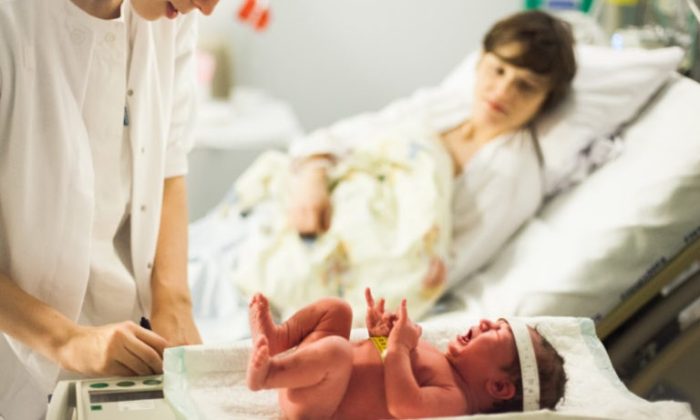Nursing care postpartum mother edapt – Nursing care for postpartum mothers, a crucial aspect of maternal healthcare, plays a pivotal role in ensuring the well-being of both the mother and newborn. This comprehensive guide explores the physical, emotional, and psychological changes experienced by postpartum mothers, highlighting the essential components of postpartum care, including assessment, monitoring, and education.
Nurses serve as key providers of education and support to postpartum mothers, addressing topics such as breastfeeding, newborn care, and postpartum recovery. Through individual counseling, group classes, and online resources, nurses empower mothers with the knowledge and skills necessary for a smooth transition into motherhood.
Nursing Care for Postpartum Mothers: Nursing Care Postpartum Mother Edapt

Providing comprehensive nursing care to postpartum mothers is crucial to ensure their physical, emotional, and psychological well-being. Postpartum mothers undergo significant changes in their bodies, hormones, and overall health, requiring specialized care and support.
Key components of postpartum care include assessment, monitoring, and education. Nurses play a vital role in assessing the mother’s physical condition, monitoring for potential complications, and providing education on topics such as breastfeeding, newborn care, and postpartum recovery.
Physical Changes
- Uterine involution: The uterus gradually contracts and returns to its pre-pregnancy size.
- Lochia: Vaginal discharge consisting of blood, mucus, and tissue.
- Episiotomy or Cesarean incision care: Management of surgical wounds.
- Breast changes: Engorgement, lactation, and nipple soreness.
Emotional and Psychological Changes, Nursing care postpartum mother edapt
- Postpartum blues: Mild mood swings and tearfulness.
- Postpartum depression: Persistent feelings of sadness, anxiety, and hopelessness.
- Bonding with the newborn: Establishing a close and loving relationship.
- Body image changes: Adjusting to postpartum physical changes.
Postpartum Education and Support

Nurses play a crucial role in providing education and support to postpartum mothers. They should cover topics such as:
- Breastfeeding: Techniques, benefits, and challenges.
- Newborn care: Bathing, diapering, feeding, and sleep.
- Postpartum recovery: Physical and emotional changes, and self-care strategies.
- Family planning: Contraception and birth spacing options.
- Mental health: Signs and symptoms of postpartum depression and anxiety.
Postpartum education can be provided through individual counseling, group classes, or online resources.
Nursing Interventions for Postpartum Complications

Common postpartum complications include:
- Hemorrhage: Excessive bleeding after delivery.
- Infection: Endometritis (uterine infection), mastitis (breast infection).
- Thrombosis: Blood clots in the legs or lungs.
- Preeclampsia: High blood pressure and protein in the urine.
- Gestational diabetes: Elevated blood sugar levels during pregnancy.
Nursing interventions for postpartum complications include:
- Monitoring vital signs and assessing for signs of infection or hemorrhage.
- Administering medications to prevent or treat complications.
- Providing education on self-care measures to prevent complications.
- Collaborating with other healthcare professionals for specialized care.
Cultural Considerations in Postpartum Care
Cultural factors significantly influence postpartum care. Nurses should be aware of:
- Dietary restrictions and preferences.
- Beliefs about rest and activity.
- Traditional postpartum practices.
- Family and community support systems.
Culturally sensitive postpartum care involves:
- Respecting cultural beliefs and practices.
- Providing information in a culturally appropriate manner.
- Collaborating with community resources to provide culturally tailored support.
Evidence-Based Practices in Postpartum Care
Evidence-based practices in postpartum care include:
- Early initiation of breastfeeding.
- Skin-to-skin contact between mother and baby.
- Postpartum hemorrhage prevention measures (e.g., oxytocin administration).
- Early ambulation and activity.
- Screening for postpartum depression.
Research has demonstrated that these practices improve maternal and infant outcomes.
Expert Answers
What are the common postpartum complications that nurses should be aware of?
Postpartum hemorrhage, infection, and thrombosis are common complications that nurses should be vigilant for and manage promptly.
How can nurses provide culturally sensitive postpartum care?
Nurses can provide culturally sensitive care by understanding and respecting the beliefs and practices of different cultures, tailoring care plans accordingly.
What are the key components of postpartum education?
Postpartum education typically covers topics such as breastfeeding, newborn care, nutrition, and self-care strategies.